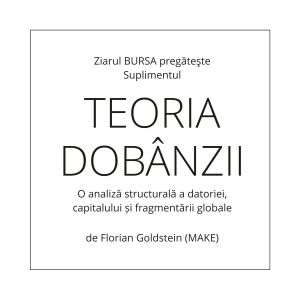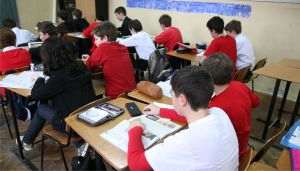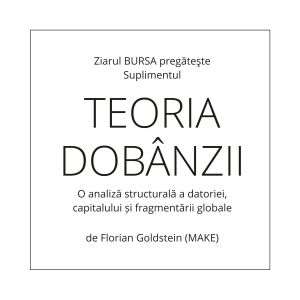Thousands of people all over the country have begun taking to the street to protest against the restrictions imposed by the government last week, where protesters no longer abided by the anti-Covid restrictions, as a concrete proof of their decision to resist.
This kind of protests have occurred all over Europe, in the last few months, with the sanitary crisis leading to actual social turmoil.
The views, however, are divided, much of those staying in their homes chose to comply with government measures.
A survey based on the BURSA's website has shown that 51% of respondents consider that the capital is charged, as the incidence rate on SARS-COV 2 infection has been established, a few days, a little over 7 in Mia residents.
Instead, 49% of respondents believe that there is no need for Bucharest's quarantine and that new restriction measures are sufficient.
A poll on the BURSA website showed that 51% of the respondents think that quarantining Bucharest is necessary, as the terms where the incidence rate concerning the infection with Sars-Cov 2 has stabilized, for a few days, a little over 7 per thousand.
On the other hand, 49% of respondents feel that there is no need for the aforementioned measures and the new restrictions are sufficient.
Readers had to respond the following question: "The Sars-Cov 2 infection rate has reached 7.02 per thousand. Do you feel that the quarantining of Bucharest is required?"
Since Sunday, when the poll was launched, and until March 30, the rate in Bucharest fluctuated around the same values. Monday, March 29, the infection rate was 7.06 per thousand, on Tuesday it was at 7.02, to rise again to 7.08 per thousand on March 30.
In the intensive care units of the hospitals treating Covid-19 all the beds are filled.
Old left-wing politicians, union leaders that have been in office for 30 years, nationalist politicians that newly entered the Parliament, youngsters, a few artists here and there, some HoReCa representatives have been marching daily on streets of cities all over the country claiming that the pandemic does not exist, that the restrictions are bad, that doctors are killing patients in hospitals, that the vaccines are nothing but a way to control the population of the globe.
What invariably begins every night as a peaceful protest, degenerates during the night into a violent one. And we are not referring here just to the fights that some members of some football supporter squads had with the gendarmes in Bucharest, but also the verbal violence that is specific to the organizer of these street movements and those who sympathize with them.
In Timişoara, some of those who were protesting went to the residence of mayor Dominic Fritz where they yelled "Don't forget, Herr Fritz, Timişoara isn't Auschwitz". Then they made public the names of all of the mayor's neighbors. In Craiova, protesters burned photographs of Raed Arafat, whereas in Constanţa they have accused the fact that he is not a Christian.
s
• Members of the Cîţu government violated the restrictions
This magma seems to be hard to keep under control by the entities of the state. Especially since the representatives of the political power are the ones who heated it up, as they keep piling restrictions but then they are seen in closed or public spaces without masks and without complying with social distancing. The negative examples set by Labor minister Raluca Turcan and former healthcare minister Vlad Voiculescu speak for themselves.
Saying "I was wrong and I will pay the fine set by law" - like the two said - is not enough, because the members of the Government, who have imposed the restrictions in question, need to represent a model for their strict application, just like kindergarten teachers.
Disturbing the public peace has become rather common, as the amount of fines issued (670,000 lei following Tuesday's protests alone) daily no longer having any demoralizing effect against those that continue to take to the streets, without masks, without complying with social distancing, violating the provisions of law 55/2020 concerning the state of alert, a law which was voted in July last year, even by some who are now protesting against the measures included in it.
The slogans being cried out now refer to freedom and are asking for many resignations: Arafat, Iohannis, the government, the mayors of Timişoara, Sibiu, Constanţa, have been demanded by protesters.
In Buzău a rather ironic situation occurred. The protesters yelled "Down with the prefect", even though the county does not yet have a prefect appointed by the Government.
• Alexandru Rafila: The third wave of the pandemic, another 45 days
According to the press release issued at the end of March by the Strategic Communication Group, 6156 new cases of infection have been found in the last 24 hours, 129 deaths have been allegedly recorded due to Covid-19 and 1412 patients are recorded in the ICU.
Yesterday's report show that the two days ago there were 6204 infections and 175 dead, on Monday there were 3825 infections and 120 dead, and on Sunday, before the protests began, there were 4438 infected people and 117 dead.
Moreover, according to the statements by social-democrat deputy Alexandru Rafila, Romania's representative with the WHO, "this unfavorable evolution of the number of cases, of the oversaturation of medical departments would last about 45 days".
"A solution tied to the return to the normal life we can get in autumn, at the end of September, October, if the vaccination campaign continues to work well from two points of view: the first, the increase in the vaccination capacity to a minimum of 100,000 people a day, including Saturday and Sunday, and second, to have the adhesion to vaccination. There is an obvious danger if people are badly informed, lied to, and there is this risk of the adherence to vaccination, in other words it;s pointless to have a vaccine if people don't get vaccinated", Alexandru Rafila said at the end of March.
And many of those who are protesting are against the Covid-19 vaccination. And perhaps that is why the protests are being labeled as less justified.
• Some restrictions, contested by the MPs of the ruling coalition
Indeed, the protests cannot be labeled as good or less justified, because they are, as Florin Jianu, the president of the National Council of the Small and Medium Sized Companies in Romania, says, a way for people to cry out their despair.
"The things that people cry out, are cried out of a feeling of powerlessness, of anger at everything that is happening; when you've lost your job or you can no longer feed your children, you find people to blame, whether they are guilty or now, you're looking for symbols to burn, such as the mask, for instance. Sure we would want protests with masks, with social distancing and that do not endanger first of all the protesters' lives, of their families and of all of us, but when poverty and the uncertainty of the future brings you at wits' end, these dangers pale in comparison. Unfortunately", Florin Jianu said in a post on his official Facebook page.
Concerning some of the new restrictions, some of them are even criticized by some liberal leaders, which includes deputies Florin Roman and Marilen Pirtea, who feel that closing stores at 18:00 do not represent a solution to prevent the spread of the pandemic.
"We are witnessing the intensification of individual reactions against the restrictions on stores' opening hours (after 18:00), or against the limiting of the public circulation (after 20:00), which indicates a certain restlessness, tied to the restriction of the conditions for the daily comfort and for the continuation of the routines that people have been accustomed to. (...) For the Easter Holidays, it is predictable that the number of cases of crowding will increase, as well as those of the violation of the minimal pandemic distance in retail areas, even a certain panic pertaining to the special supply with holiday-specific products. In this context, it is worth thinking that the schedule of retail areas can be extended, even all the way to eliminating the working hour restrictions, in parallel with the introduction of some security measures whereby stores will reduce the number of carts and baskets available at the door, to comply with the maximum number of people allowed in stores, calculated based on their usable surface. That kind of measures, together with the strict compliance with the obligation to wear the masks and thermoscanning, can ensure the epidemiological safety, without reducing the stores' opening hours", liberal deputy Marilen Pirtea said in a press release. The number of cases isn't scaring the protesters, who in March went out again to the streets in several cities across the country.







































